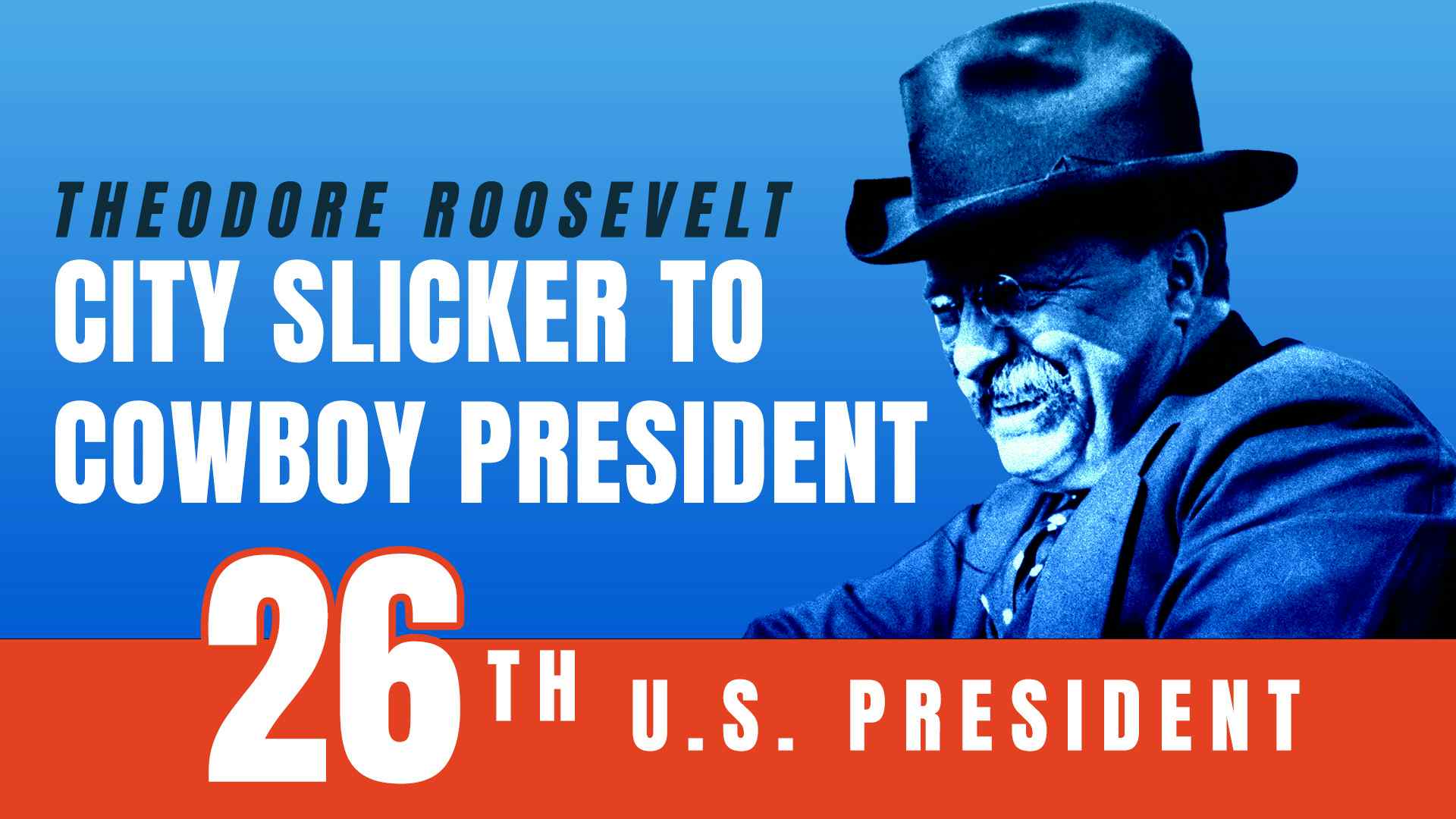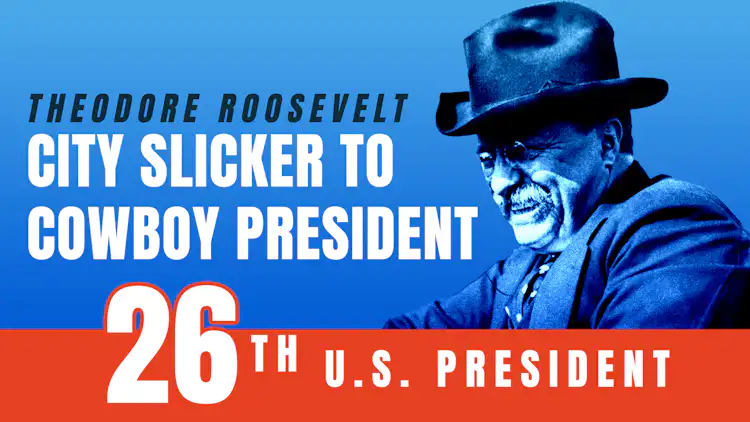The time had come for America to take its place among the great nations of the world. There was no better man to lead this charge than Theodore Roosevelt. Wilfred McClay, professor of history at Hillsdale College, chronicles the complex career of America’s 26th president.

© 2024 PragerU
Transcript
Even the Democrats knew that beating Theodore Roosevelt in the presidential election of 1904 was a long shot.
They were right.
TR was still the hero of the Spanish-American war; still the personification of energetic, forward-looking America.
He had just had a very successful three and a half years. He fulfilled much of his late predecessor’s agenda – advancing the Panama Canal project, for example – while realizing his own ambitions in his own unique way: like going after the big corporate monopolies.
Indeed, the election was a total wipeout. TR won with a bigger margin of victory than anyone since James Monroe — who ran unopposed — and that was in 1820.
With four more years ahead of him, it seemed like there was nothing Roosevelt couldn’t accomplish. He hit the ground running, pushing through new railroad regulations and consumer protections, such as the Pure Food and Drug Act.
Conservation of natural resources was of special interest. Roosevelt was an outdoorsman, and his experiences in the Dakotas gave him a keen appreciation of the open spaces of the American West. He wanted them preserved.
He established the Forest Service, signed into law the creation of five National Parks, and proclaimed 18 new national monuments. The total area he placed under public protection was approximately 230 million acres.
And he didn’t confine himself to domestic concerns. America had become the number one economy in the world. Now, Teddy believed, it had to become the greatest military power in the world. To make his point, Roosevelt sent the new American naval fleet on a worldwide tour from 1907 to 1909. The “Great White Fleet” as it was called, personified Teddy’s famous line, “Speak softly and carry a big stick.”
Back home, however, there was nothing soft about his speech, especially when it came to those opposing his policies. He denounced the “malefactors of great wealth” for their “predatory” behavior. To counteract them, he signed a bill restricting corporations from making political contributions. He also pushed for federal control over the stock market and called for a permanent income tax.
Such proposals and such rhetoric antagonized the conservative “Old Guard” of the Republican Party. Even though they managed to block portions of Roosevelt’s agenda, they couldn’t block his reforming zeal. The people were with him – that’s what mattered.
He used that popularity to promote his hand-picked successor, Secretary of War William Howard Taft. The choice was an odd one given that Roosevelt had such an expansive view of the powers of the presidency while Taft believed the opposite – that the president was restrained by the letter of the Constitution.
After Taft won an easy victory in the 1908 presidential election, Teddy vowed to stay out of politics. After the inauguration, he embarked on a year-long hunting trip to Africa, followed by a highly successful tour of Europe where he was feted by virtually every head of state.
Even while he was gone, though, he was losing faith in the more conservative and cautious Taft. Roosevelt felt that Taft was squandering his legacy and that was something he simply couldn’t abide.
The differences between the two men exploded into a one-sided feud. Taft wanted peace but Teddy was spoiling for a fight. The rift deeply wounded Taft, who lamented, “Roosevelt was my closest friend.”
By now, TR was a full-on Progressive, advocating for an early form of social security, for weakening of property rights, and even for allowing voters to overturn unpopular judicial decisions. Taft was alarmed. These proposals envisioned a government and a chief executive far beyond anything the Founders had intended.
It soon became clear that this was not just a personal squabble between mentor and mentee. The showdown came in Chicago at the Republican Convention in the summer of 1912. Roosevelt had the crowd but Taft had the party.
After Roosevelt failed to get the nomination, he and the party’s Progressive wing stormed out of the Chicago Coliseum, and formed a new party, the Progressive, or as Teddy called it, “Bull-Moose” Party.
“We stand at Armageddon and we battle for the Lord!” he thundered at the party’s impromptu convention.
He threw himself into his third-party campaign with his usual unrestrained vigor.
Even an assassination attempt in which he was seriously wounded couldn’t silence him. In fact, it didn’t even stop him from giving a speech that same day.
When the results were in, it was the most successful third-party run in American history, garnering more votes, popular and electoral alike, than the Republican Party. But ultimately, it split the Republican vote and handed the election to the little-known Democrat, Woodrow Wilson, a man who would push the country in a new, leftward direction far beyond that envisioned by Roosevelt, let alone Taft.
That was the dark side of TR. His boldness could veer into overconfidence – even narcissism. Others would have to pay the consequences.
But we must not forget the brighter side: the indomitable, idealistic, action-hero president who, more than almost anyone else, represents the American spirit of adventure and possibility.
I’m Wilfred McClay, professor of history at Hillsdale College and author of Land of Hope, for Prager University.Close
